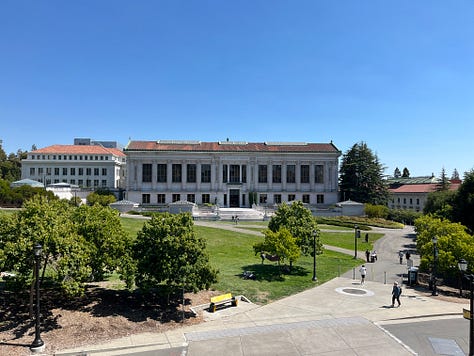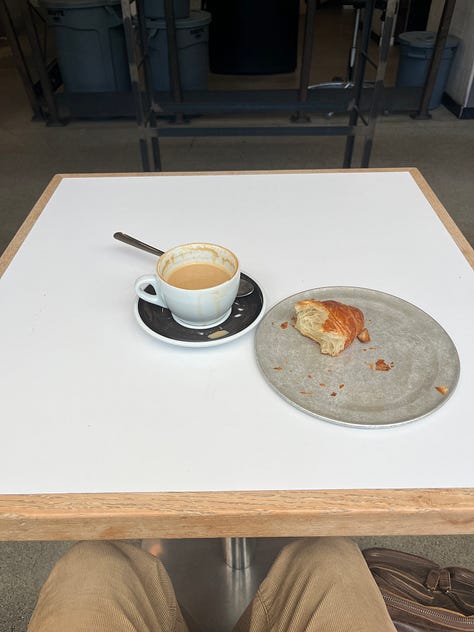Welcome back to Jeremi and Luca’s Newsletter, an update every Sunday from two friends connected by a relentless desire to learn.
Jeremi: Less Tasks
I have a complicated relationship with time-blocking. In the last two years of high school, I did it religiously. Every morning, I would write out every single hour of the day, and plan exactly what I would be working on at any given time.
It started to weigh on me, and I became very inflexible with my schedule. When a friend invited me to hangout, I felt a lot of internal conflict—if I went along, I was going against the schedule I had set for myself that morning. This would mean getting less done than what I’d hoped in the day.
In college, I went to the opposite extreme: I trusted myself to be productive, so I didn’t do any time-blocking. I let myself make the decision in the moment for whether to spend time with friends or to get work done. This worked well for the most part.
But there are some downsides. When I don’t plan, my time management happens subconsciously and I don’t always optimize for the right things. I’ll do things that seem productive but are not high on my priority list, and I end up procrastinating the things that I do care about. Usually this is because there is some uncomfortable aspect of those high priority tasks or they are more difficult.
I wanted to test something out while in Berkeley: each morning, before I start the day, I sit down with my journal and think about longer-term goals and what is important to me.
Then, I jot down the 3 most important things I’d like to get done that day. That’s it. Even if there’s a lot of small stuff I’d like to get done, I ask: what are the 3 things that, if I complete, would make the day? Regardless of what else happens?
Then I focus with vigor on those three things, and let myself be flexible for the rest.
This week, the “rest” was playing spikeball, rock-climbing, and continuing the house reading group.



Luca: Less Time
Every morning in New York, almost without fail, I start my day with a backlog of about ten or so texts/emails waiting for my response. They’re messages I either put off the previous day or received while asleep.
I’m usually not able to take a good look at these messages until I’m on the subway heading to work—by then, I’m underground without cell service.
But during the brief, maybe 2 minute period the train is above-ground traversing the Manhattan bridge, I somehow answer every single one.
I was thinking about this last week as I noticed the pattern emerging. The constraint of the two minutes with cell service pushes me to act fast and intentionally. Had we been in a bus with service the whole time, I know this would not be the case.
In some ways, this may be thanks to a competitive nature in me—I’m racing against the clock. In other ways, and at a higher level, this is due to constraints—I’m seemingly performing better under limitations.
I’ve broadly seen this in action across my life. Having more commitments has consistently made me feel more productive. The trouble is that only a part of this is true. Up to some line, doing more does increase my valuation of time. But past that line, I’m chasing a feeling of productivity rather than the actual state itself.
This summer, I have only two and a half months in NYC. Next year, I have one semester at Berkeley and one in London. These feel like good constraints: they’re pushing me to really make the most of wherever I am.
But only a year ago, I was constraining myself to 20 minute chunks of time, calendaring out every little thing and attempting to perfectly optimize my life. This eventually—and certainly—led to a converse “unproductivity,” where I was more focused on the feeling of being productive rather than, again, the state itself.
An overarching point here—there is some sweet spot, where constraints can be optimizations rather than limitations. So, maybe I’m in a continuous pursuit of that spot. At the very least, those two minutes on the train seem to be working well.








Another good edition of your newsletter. Jeremi, I saw myself in your comments. For years, I have been discussing with other attorneys the challenge presented by how -- when we have 10 things to do on our desk -- we start with the stuff we like better, the easier stuff, etc. When we really should start with the hardest thing, because accomplishing that task makes you feel so much better! Glad to hear that summer is going well for you both. Rob
Thanks Luca and Jeremi. I continue to be inspired by your good use of time!!!